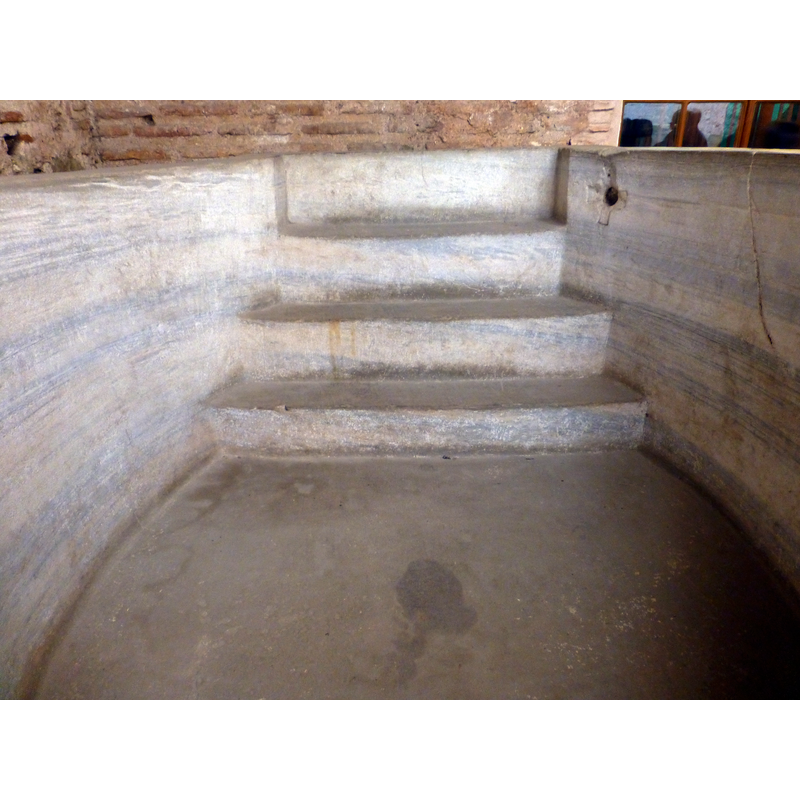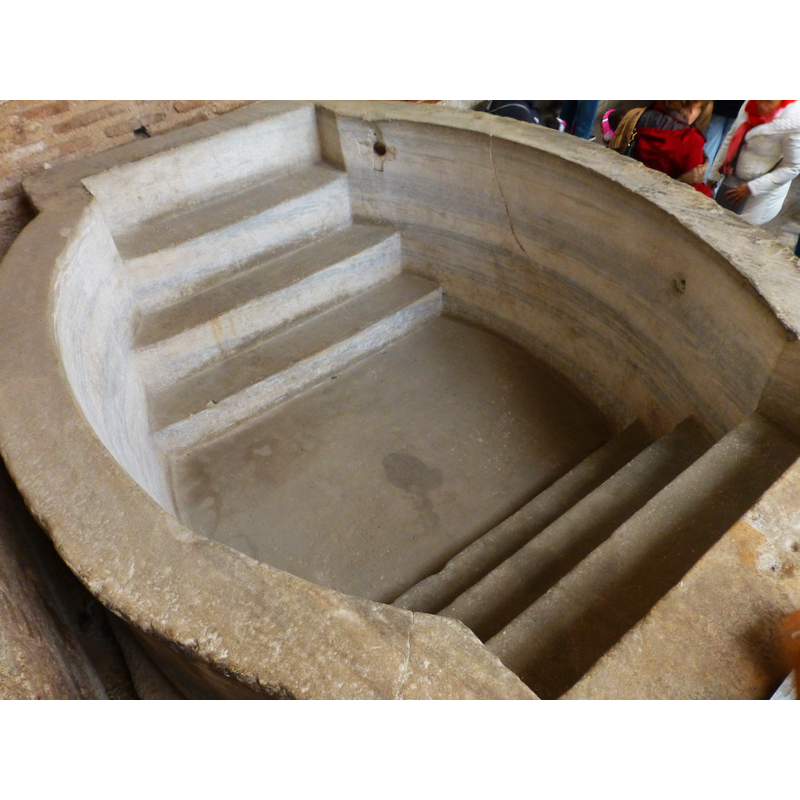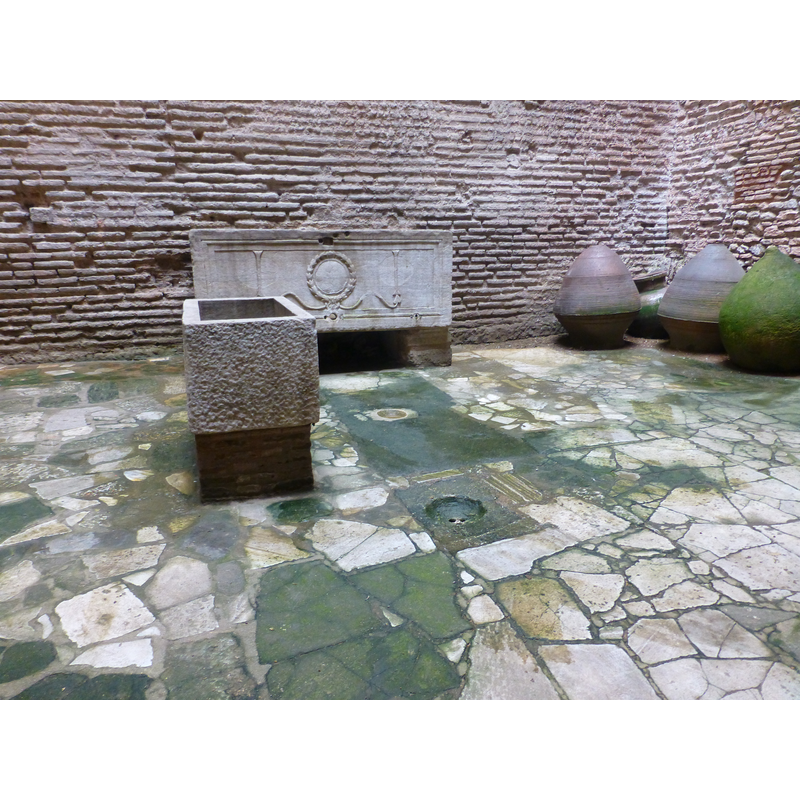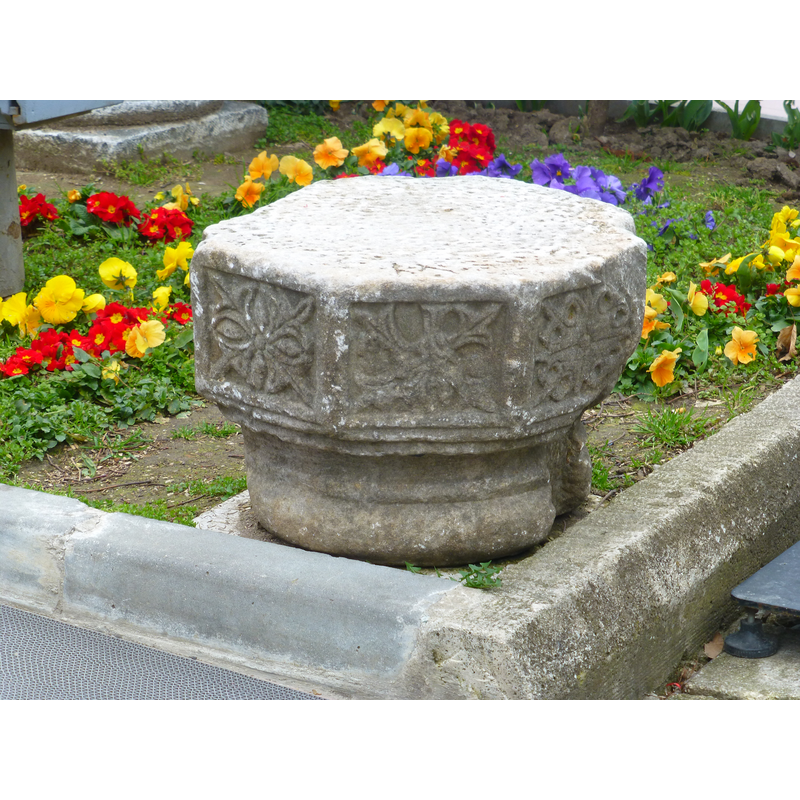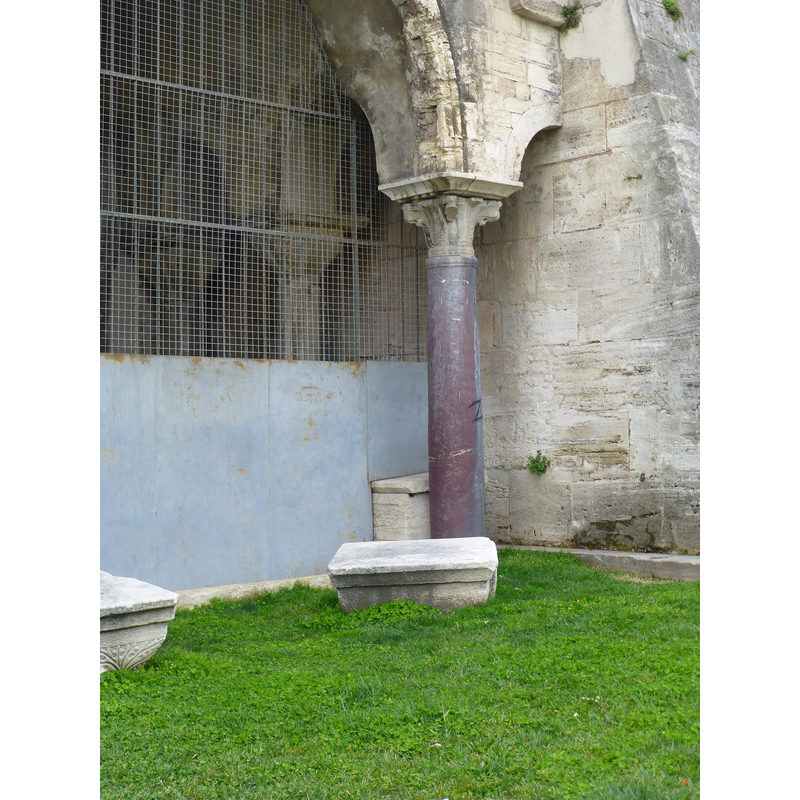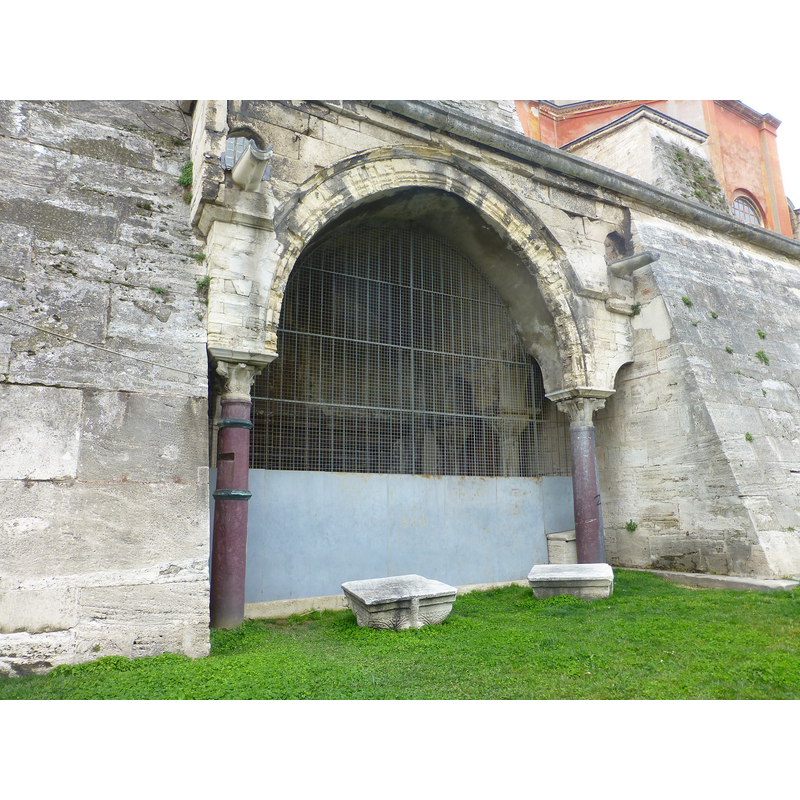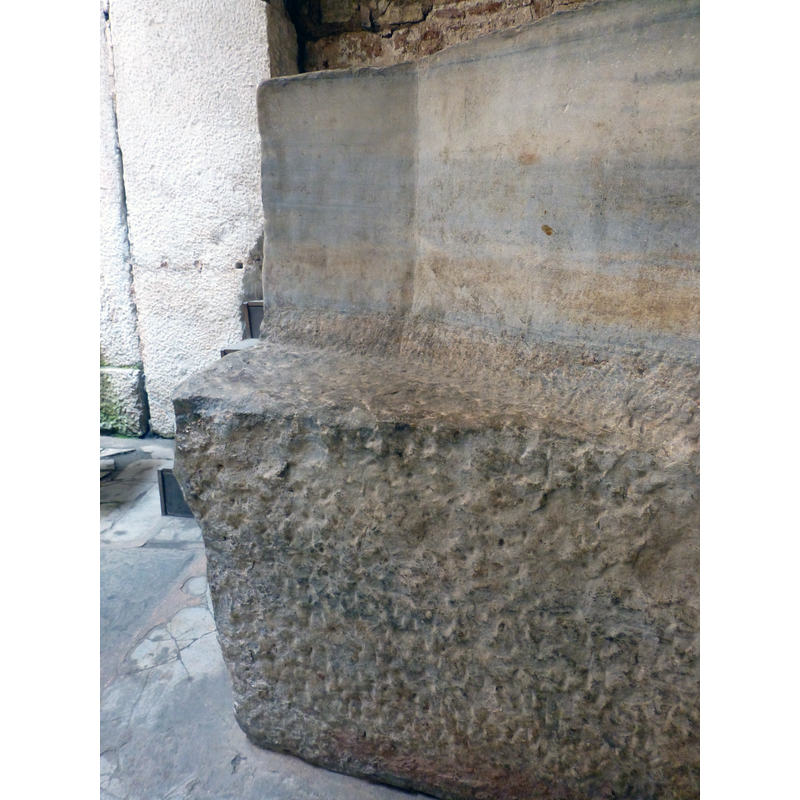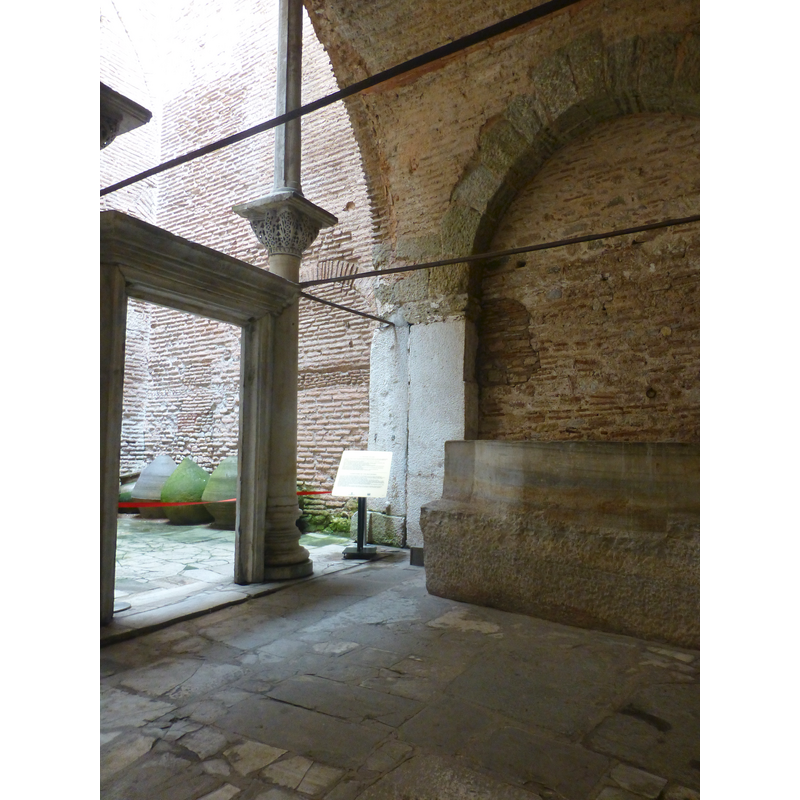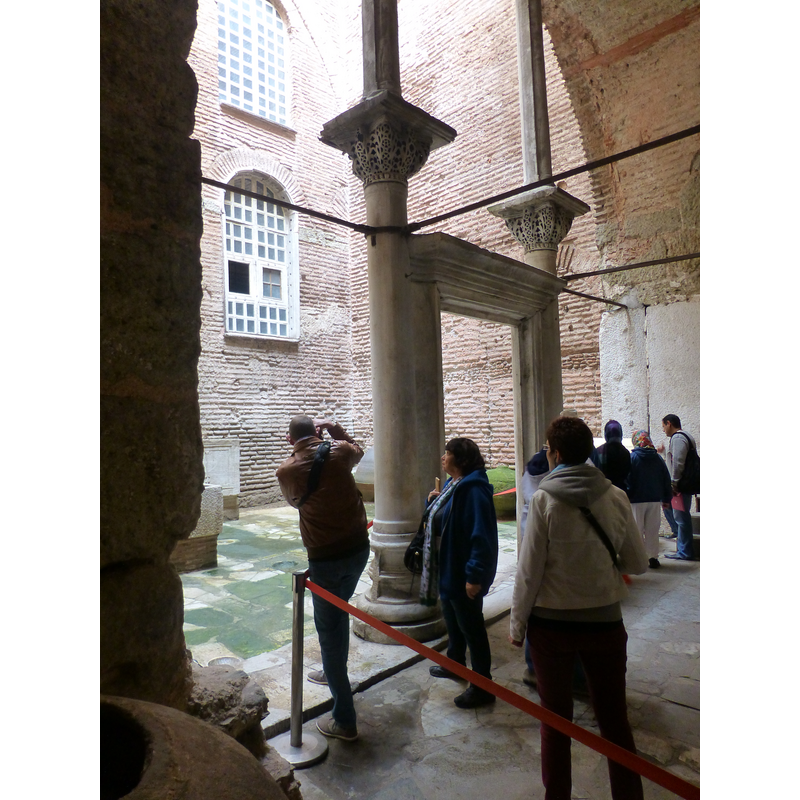Constantinople No. 5 / Constantinopolis / Istambul / Istanbul / Kostantiniyye / Kōnstantinoúpolis / Κωνσταντινούπολις / Nova Roma
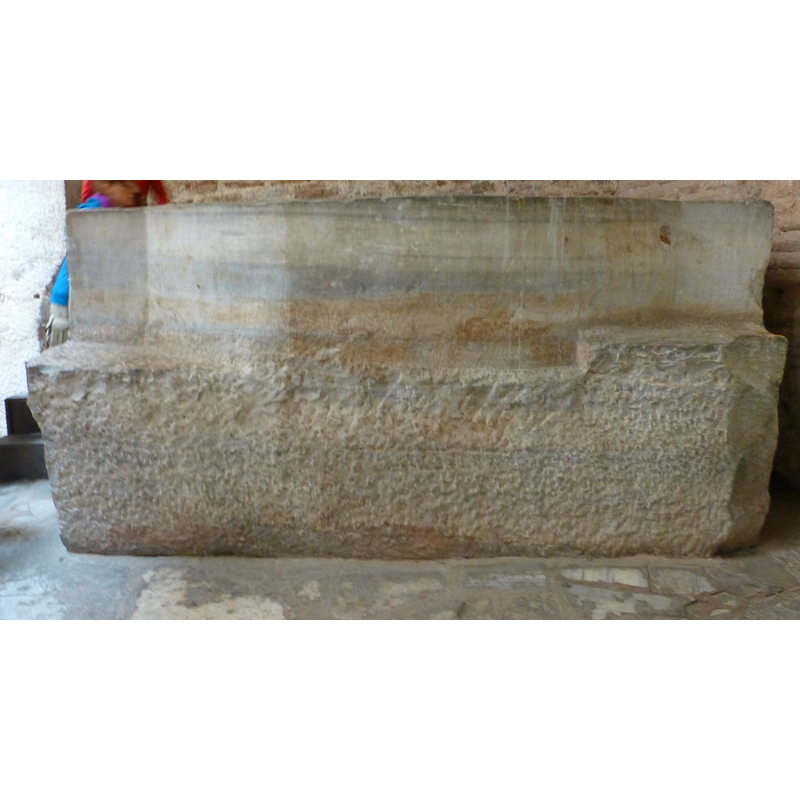
Image copyright © Baptisteria Sacra Index, 2023
CC-BY-NC-ND-4.0
Results: 12 records
view of font
view of basin - upper rim - detail
symbol - cross - Greek
view of basin - interior - detail
view of basin - interior
view of baptistery interior - detail
view of baptistery interior - detail
view of baptistery interior - detail
view of baptistery interior - detail
view of font - detail
Scene Description: the unfinished surface of the lower half of the font shows the depth to which the font would have been buried; the upper part, finished and polished, would stay above ground
Copyright Statement: Image copyright © Baptisteria Sacra Index, 2023
Image Source: digital photograph taken 24 March 2015 by BSI
Copyright Instructions: CC-BY-NC-ND-4.0
view of font in context
INFORMATION
Font ID: 17256CON
Object Type: Baptismal Font3
Date Visited: 2015-03-24
Font Century and Period/Style: 6th century, Early Christian
Museum: Ayasofya Müzesi [a museum since 1934]
Church / Chapel Name: Hagia Sophia / Aya Sofia / Ayasofya Müzesi
Font Location in Church: [cf. FontNotes]
Church Patron Saint(s): Logos [aka Wisdom of God / Holy Wisdom]
Church Notes: original church 537 by Justinian; converted to mosque in 1453; converted to museum in 1934
Church Address: Ayasofya Meydanı, Sultanahmet Fatih, Turkey -- Tel.: +90 212 522 1750
Site Location: Istanbul, Istanbul, Turkey, Asia
Historical Region: formerly Constantinople
Additional Comments: disused font; after excavation in 2010 it is now displayed in the Hagia Sophia 'baptistery' museum
Font Notes:
Click to view
The Hurriyet Daily News & Economic Review (issue of 14 December 2010) [www.hurriyetdailynews.com/n.php?n=world8217s-largest-baptism-pool-to-open-to-visitors-in-spring-2010-12-14] informs: "A baptismal font unearthed during restoration of Hagia Sophia has been revealed to the press. The baptismal font dates back to the sixth century and was used in mass baptism ceremonies [...] A large baptismal font unearthed during restoration work in the Hagia Sophia and dating back to the sixth century was shown to press members at a press conference Monday [...] Kurt [Yilmaz Kurt, head of the Istanbul 2010 European Capital of Culture Agency] said the ancient baptismal font, which was unearthed during archaeological work, would be open to the public for viewing. 'The baptismal font was positioned in a place in the structure that was closed to visits. It is made of solid marble. The font, which shows the cultural and architectural style of the Byzantium period, is still very strong and clean. It is very important in the history of the museum and everyone will be able to see it.' [...] Speaking about the features of the baptismal font, Dursun [Haluk Dursun, director of the Hagia Sophia Museum] said the Hagia Sophia’s Byzantine (Greek Orthodox) baptistery building had been turned into an Ottoman sultans’ tomb, and the sixth-century baptismal font in it was moved to the baptistery’s courtyard [...] Dursun said olive oil was used in baptism ceremonies in Byzantine Orthodox culture. Historical olive oil cubes and sarcophaguses were also unearthed in the court. He said as part of the restoration work in 2010, the baptistery’s courtyard was restored and the baptismal font was unearthed. 'This font was used in mass baptism ceremonies. I guess we are the first ones to see it since the conquest of Istanbul, because the baptismal font was never used again once the Hagia Sophia was turned into a mosque.' [...] Dursun said the baptismal font was 3.32 meters long, 2.52 meters wide and 1.16 meters deep." This source cites "Hurriyet News [December 14, 2010]" as the original source of the news. The font is oblong, with convex longer sides; about half of its hight is carved and polished and is obviously meant to be above ground, whereas the lower half of the block is rough and destined to be underground; the inner well has curved convex sides as well; on one of the narrow sides of the interior is a set of descending steps; the depth of the interior well appears to be close to the total height of the block [cf. Font Description area for measurements]. On-site notes: the massive piscina is now located near the gated entrance to the baptistery courtyard, standing unearthed by one of the side walls; there are two sets of stairs at the short ends of the font, four stairs each; at one of the upper sides of the inner well, very near the top step of the stairs, is a cross-shaped carving with a hole in its centre; the font was origininally designed to be partly [abouth half its height?] buried in the ground, and the lower half of the font is rough, unfinished, whereas the upper half was cut and polished, but it otherwise plain; one of the upper corners of the rim shows two drilled holes, with a third drilled into the unfinished part below; in a later standing font these would be most likely part of the anchorage for a font cover, but such cannot be assumed here. Although the fonts is roughly rectangular, the sides are slightly oval.
COORDINATES
Latitude & Longitude (DMS): 41° 0' 30.90" N, 28° 58' 48.62" E
MEDIUM AND MEASUREMENTS
Material: stone, marble
Number of Pieces: one
Font Shape: sunken font, oval
Basin Interior Shape: oval
Basin Exterior Shape: oval
Drainage Notes: no lining
Rim Thickness: 20.52 - 22.86 cm**
Basin Total Height: 116 cm* / 116.84 - 119.38 cm**
Trapezoidal Basin: 332 x 252 cm* / 332.74 x 254 cm**
Notes on Measurements: * Haluk Dursun, in The Hurriyet Daily News & Economic Review (issue of 14 December 2010) / ** BSI on-site [tread length of steps: 24.13 cm** [NB: the modern standard is 24 cm]]
![drilled holes; what for? [cf. FontNotes]](/static-50478a99ec6f36a15d6234548c59f63da52304e5/compressed/1150424023_compressed.png)
![with a hole in its centre [cf. FontNotes]](/static-50478a99ec6f36a15d6234548c59f63da52304e5/compressed/1150424022_compressed.png)
